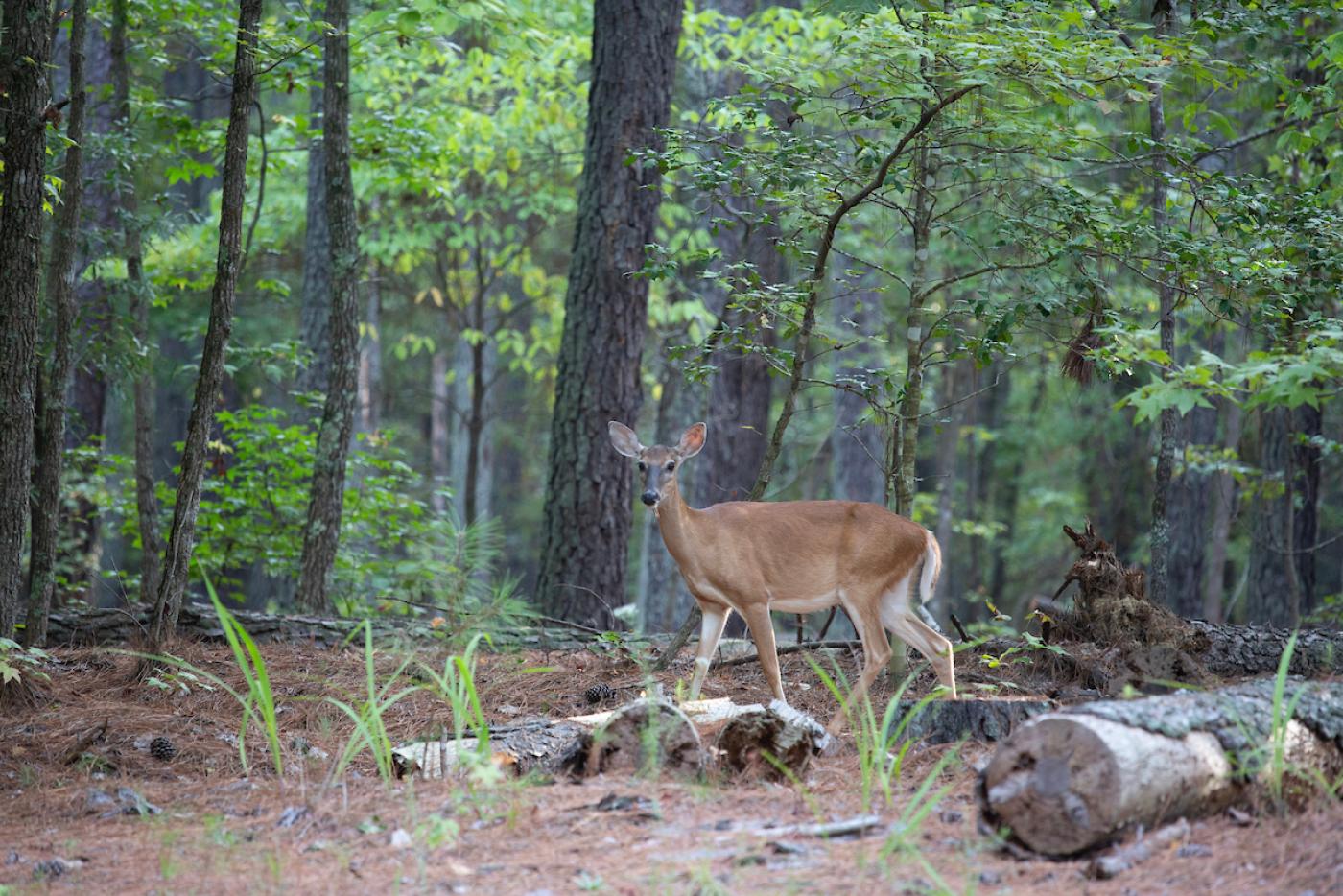The N.C. Wildlife Resources Commission (NCWRC) is reporting the first presumptive detection of Chronic Wasting Disease (CWD) in Edgecombe County. NCWRC has received a preliminary positive test result on a 3 ½ year-old male white-tailed deer harvested by a hunter in the eastern corner of the county. The closest confirmed location from this new suspected site is 92 miles away in Cumberland County.
The deer was harvested a few miles from the Pitt-Martin County line. If confirmed as positive, it would be the 35th CWD-positive deer found in North Carolina since the initial CWD detection in 2022. The sample is being tested by the National Veterinary Services Laboratory (NVSL) to verify the initial results.
“We are certainly not happy to learn that we may have a new CWD infected area in the northeastern part of the state,” said Game & Furbearer Program Assistant Chief Chris Kreh. “However, this is what our surveillance plan is designed to do - find areas where CWD is occurring, as early as possible, so we can minimize its impact.”
CWD is transmissible to other deer and spreads through infected body fluids, namely saliva, urine and feces, and the movement of infected deer carcasses and carcass parts. Deer may appear healthy during early stages of infection, therefore, NCWRC stresses to hunters the importance of taking precautions when transporting or disposing of deer carcasses; improper disposal may lead to moving CWD to new locations.
NCWRC asks hunters to submit deer harvested in Edgecombe and surrounding counties for testing as a critical part of annual surveillance activities. Hunters can use NCWRC’s interactive map for information on current testing drop-off locations across the state.
Over the past four years, NCWRC has collected and tested samples from nearly 3,000 deer for CWD in Edgecombe and surrounding counties.
NCWRC advises those hunting in Edgecombe and surrounding counties to keep whole deer carcasses and high-risk carcass parts in the county of origin or take them to a processor or taxidermist participating in the NCWRC’s Cervid Health Cooperator Program for proper carcass disposal and test submission.
- All hunters are encouraged to follow one of the following disposal methods for non-edible portions of carcasses not taken to a Cervid Health Cooperator:
- Bury deer remains where you harvest the animal when possible.
- Double bag deer remains for disposal in a landfill.
- Leave the deer remains on the ground where the animal was harvested.
Low-risk carcass parts, including boned-out meat, caped hides, antlers and cleaned skulls, cleaned jawbones and teeth, and finished taxidermy products are safe for transportation to areas outside of Edgecombe County.
“We will continue, and potentially increase, our surveillance in this area and hopefully in a few years we’ll have a good understanding of how many deer are infected and how big the infected area is,” Kreh said.
NCWRC Wildlife Management Division Chief Brad Howard says he does not expect any changes to this season’s hunting regulations or Surveillance Areas regardless of the second test results. Any potential changes related to CWD in Edgecombe and surrounding counties would be made during the 2026-27 deer hunting season.
“A mid-season regulation change would be very confusing,” said Howard. “I’m confident our hunters can absorb this new information and help us take steps to increase our surveillance and awareness to the area.”
NCWRC sends samples obtained by hunters to an independent laboratory for CWD testing. Positive detections are then sent to a second lab for verification.
According to the Centers for Disease Control, to date there have been no reported cases of CWD infection in people. While there is no scientific evidence that CWD can infect humans, some animal studies suggest it poses a risk to certain types of non-human primates. Since 1997, the World Health Organization has recommended that it is important to keep the agents of all known prion diseases from entering the human food chain.
Visit ncwildlife.gov/CWD for updates and to learn more about the agency’s management of CWD in North Carolina.
Subscribe to NCWRC’s Hunting News and receive hunting information, events, regulations and feature stories.

